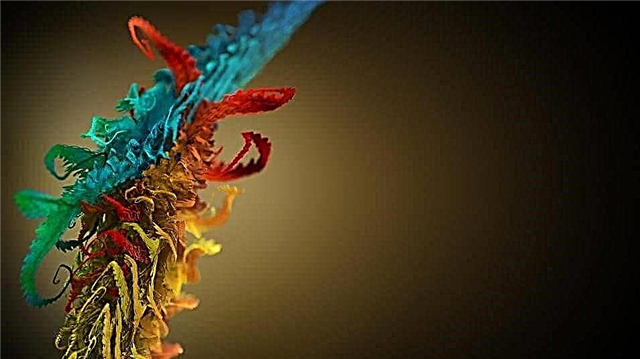
A smile is the first skill that appears in a newborn. People are smiling all over the world, regardless of their skin color or the language they speak.
People also laugh everywhere, in order to laugh, the child does not need to learn anything, such a reaction to positive emotions is programmed in the subconscious and begins to manifest itself even before birth.
Statistics show that the average person smiles and has fun laughing about 17 times a day. This is approximate information, because the tendency to laugh and smile directly depends on the person’s temperament, his emotional background over the current period. Smiles and laughter are useful, and therefore even doctors recommend maintaining a positive attitude and laughing heartily, smiling more often. Even if a person is sad, he can make an effort and smile and his mood will begin to rise.
Smile and laughter are the best gymnastic exercises. They force more than 80 groups of facial muscles to work, maintaining the tone and youth of the face. At the same time, the body receives a dose of endorphins, hormones of pleasure, and spends about 550 kilocalories per minute, which is comparable to intense exercise. Laughter also lowers adrenaline. It is known that only man laughs on Earth, although some animals can also be taught this.
The causes and origin of laughter
It was not possible to analyze the physiological prerequisites for the appearance of laughter in detail, as well as the physiology of this phenomenon itself. Research is still underway on this subject, and sooner or later, scientists will get to the bottom of the truth.However, one thing was undeniably understood - laughter is a physiological reaction of the human body to the phenomena surrounding it, which are very different from the usual picture of the world that has already taken shape in the head. So the human mind reacts to what is happening around, which does not cause a sense of danger, but is wrong, unusual, which should not exist at all.
Humor is different - children's and black, professional, household. And that which amuses one person may not be at all interesting and not causing emotions in another. A sense of humor is individual, it expresses the inner world of a person, demonstrates what is permissible and inadmissible for him. After all, everyone has their own concept of normality, and if a person considers what is happening or told him to be completely normal, there will be no fit of laughter. And vice versa.
Types of laughter
But the human body gives each phenomenon its own characteristics, and laughter was no exception. Being controlled by a person’s consciousness, he can become a mockery - for example, when you need to make fun of someone. This is an acquired skill that has formed against the backdrop of an innate skill. There is also a nervous laugh as an abnormal reaction of the body during stress, and a host of other variations, for example, hysterical laughter, which is also involuntary, and requires stopping the hysteria, after which it passes.
A person can restrain laughter, or vice versa, pump it on purpose. By the way, if you return to the topic of nervous laughter, there may be an involuntary reaction of the body, which is trying to normalize itself on its own.
From laughter it becomes better and easier, the human body "knows" about it at the physiological level, and therefore tries to relieve stress in this way. And there is also laughter through tears, this happens in situations where a person experiences very strong, but conflicting emotions. Each person knows how to laugh even in a dream - after all, this is a subconscious reaction that works even when the mind is resting.
In addition, a reaction in the form of a laugh can manifest itself by tickling. And constant laughter or fits of it can be one of the symptoms of a mental disorder or drug abuse. Be that as it may, today laughter is studied primarily by psychiatrists who describe it as a complex respiratory act, accompanied by characteristic facial expressions.
The ability to laugh is inherent in every person at the physiological level. This is also proved by the fact that all the deaf and dumb are able to laugh, those people who have never heard such sounds in their lives and cannot repeat them. Laughing people, from generation to generation living in remote territories, who had no contact with other groups - islanders, representatives of wild tribes.
Laughter is what unites all of humanity without exception. And scientists believe that this skill has high social significance, helps people to communicate and interact - for this it is first and foremost necessary. Well, and secondly, it is important for normalizing and maintaining the body’s own indicators, this is a kind of measure to reduce the psychological burden, and even improve health.












